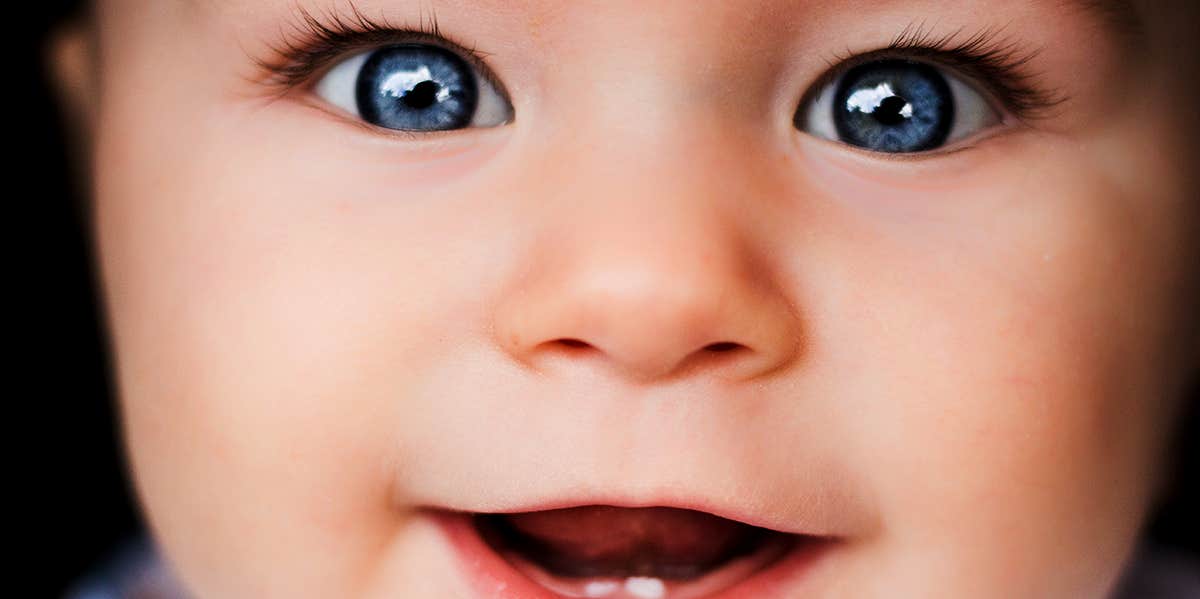The Cool Way Brown-Eyed Parents Can Have Blue-Eyed Kids
Here's the biology behind eye colors.
 riggleton | Shutterstock
riggleton | Shutterstock Do you have blue eyes? (Lucky you!) Are you dating someone with blue eyes? (Even luckier!) You may think that eye color similarity is no different than dating someone with a similar hair color or skin tone, but science just revealed that all people with blue eyes are genetically linked.
Thus, you and your blue-eyed hunny are both related somehow. And even weirder, your shared relative can be narrowed down to one ancestor.
Here is the cool way brown-eyed parents can have blue-eyed kids.
A 2008 study at the University of Copenhagen found that because blue eyes are a genetic mutation — before said mutation, everyone in the world had brown eyes — and everyone who has blue eyes is related.
They recruited 800 people with blue eyes and found that 99.5% (!!!!) of them had the same mutation in the gene that affects the color of their eyes.
But how can this be? Well, put on your biology caps because the answer is super simple: it's because of genetic mutations. And it's these genetic mutations that often have parents with blue eyes wondering how their child has brown eyes.
There are two main genes responsible for eye color: HERC2 (HECT And RLD Domain Containing E3 Ubiquitin Protein Ligase 2) and OCA2 (oculocutaneous albinism II). HERC2 activates the OCA2 gene, and OCA2 activates proteins that act as pigments. If there's a mutation in either gene, the chain is broken and OCA2 won't produce pigments, resulting in blue eyes.
So, how is it possible to have a brown-eyed child when one or both parents have blue eyes?
Everybody inherits two genes from their parents — one from their mom and one from their dad. If the dad has one mutated gene and one working OCA2 gene, the child will still have brown eyes because they'll inherit the dominant gene: brown eyes.
But let's say that both parents have a mutated gene.
If this is the case, there's a 25 percent chance the baby will have blue eyes. And this gene can be passed down through generations, as it's a submissive gene. This is the same concept as Punnett squares that you learned in middle school biology.
Science isn't totally sure who the relative is that blue-eyed people share, but the oldest remains of a blue-eyed person were found in Spain. The man is about 7,000 years old and has a combination of African and European genes. This means that different eye colors appeared in humans before different skin tones. Wow.
See, your dad isn't the mailman after all! But the bad news is: if you and your significant other both have blue eyes, you're distant relatives.
Nicole Weaver is a senior writer for Showbiz Cheat Sheet whose work has been featured in New York Magazine, Teen Vogue, and more.
